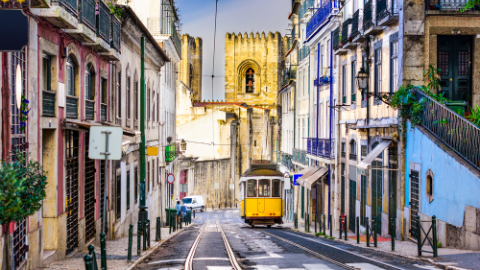
The city of Lisbon, Portugal has pledged to transfer 150,000 daily private vehicle commuters to more sustainable modes of travel by 2030 in an attempt to increase mobility within the city and to reduce emissions and local air pollution.
Vasco Móra, Mobility Adviser to the Deputy Mayor of Lisbon, is studying third-party tools that enable mobility-as-a-service (MaaS). He is creating a mobility catalogue – a database of essential mobility infrastructure information which can be given to app providers, as a source of accurate, up-to-date information.
The mobility catalogue will include:
- planned transport supply information (when public transport services should arrive, based on the timetable);
- real-time events (i.e. where the bus is right now, whether there is a strike, roadworks etc.);
- infrastructure information such as bus lanes, cycle lanes, parking spaces and details about the terrain; and,
- mobility ‘rules’ – e.g. areas where tariffs are in place or where parking is restricted, as well as information on closures etc. at specific periods of the day or week.
The idea is that journey-planner apps, such as Waze, CityMapper, Google Maps, and others will be able to use the detailed data to complement the more generic information that they have.
Móra said, “At the City of Lisbon, we want to try to influence these journey planners without having the need to own a journey planner.” However, he says if third-party companies don’t utilize the information provided, “then we will have to consider building a journey planner on our own and probably an app too – but only if that doesn’t happen”.
Móra cautioned that not everyone will adopt MaaS solutions, so there is still the need to have legacy ways for people to easily use the transport system.
“MaaS is great, and we need it, but we must not forget those that will not be included in whatever effort we make,” Móra said.


